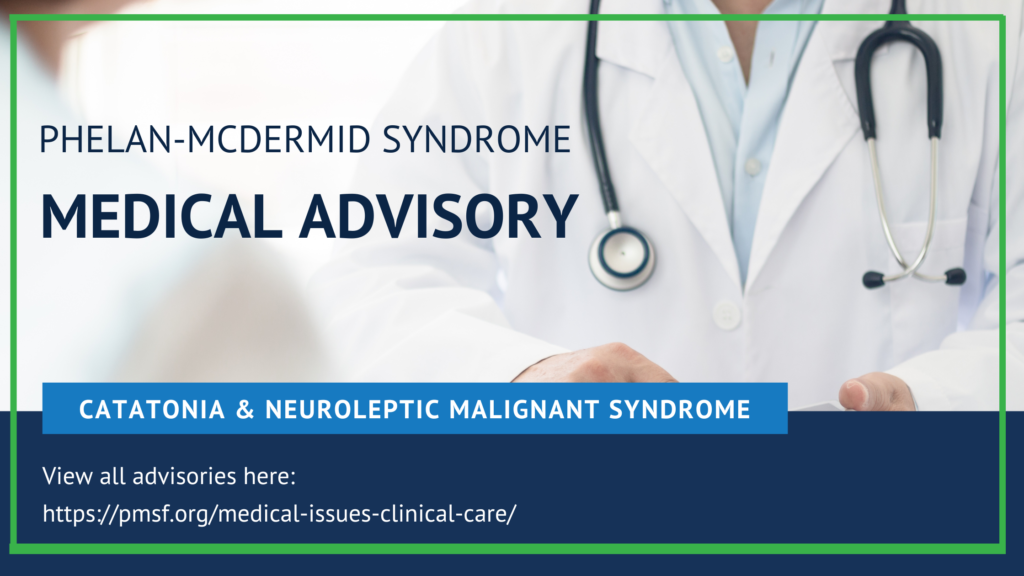
Important Message from our Medical Advisory Committee
November 7, 2022
From: Alex Kolevzon, MD, PMS MAC chairperson; William Bennett, Jr, MD, MS; Elizabeth Berry-Kravis, MD, PhD; Ann Neumeyer, MD; Curtis Rogers, MD; Teresa Kohlenberg, MD
Re: Information for Health Care Providers of Patients with Phelan-McDermid Syndrome
Dear families affected by Phelan-McDermid syndrome (PMS),
The PMS Medical Advisory Committee and the PMS Neuropsychiatric Consultation Group provide support to families and to physicians caring for people with PMS with complex behavioral presentations. Based on our experience with more than 100 affected individuals, and knowing the difficulty that families encounter in accessing appropriate psychiatric care, we have developed this information sheet for you to share with your providers as relevant.
PMS is a rare genetic disorder which usually involves changes in a critical gene (SHANK3) on the long arm of chromosome 22. The SHANK3 protein is a scaffolding protein in glutamatergic synapses, including among other functions the positioning of the NMDA receptor. Clinical features often include intellectual disability, autism, epilepsy, sensoryseeking behaviors, pica, chronically disrupted sleep, and severe constipation with related behavioral disturbances.
Around puberty or in early adulthood, some people with PMS are prone to develop bipolar disorder, associated psychotic features, and severe anxiety or obsessive compulsive symptoms. When distressed, some may develop new aggression or self-injurious behaviors, or try to run away.
Emergency Department and Urgent Care providers must be aware that:
- People with PMS are extremely sensitive to antipsychotics, with high rates of extrapyramidal symptoms, medication-induced catatonia, and neuroleptic malignant syndrome (NMS).
- Antipsychotics should be used only when alternative medications to manage difficult symptoms have been explored, and then at only low doses.
- Intramuscular doses of medications like haloperidol have triggered NMS in some people with PMS, and repeated doses of antipsychotics can induce catatonia.
- The use of more than one antipsychotic medication at a time is strongly discouraged.
- Catatonia occurs in roughly 50% of PMS patients who develop psychiatric symptoms.
- Catatonia itself can be the first episode of psychiatric disturbance.
- When catatonia occurs, it may be stuporous, but hypermotoric catatonia with prominent, purposeless restlessness, agitation, and atypical aggression resembling manic delirium is also well described in PMS.
- If catatonia is suspected, PMS patients tend to respond well to lorazepam TID, sometimes requiring increases to high doses (click here for a pdf copy of this advisory with pharmacologic recommendations).
More information and details about requesting a consult from the PMS Neuropsychiatric Consultation Group can be found here: https://pmsf.org/neuropsychiatric-consultation-group/
